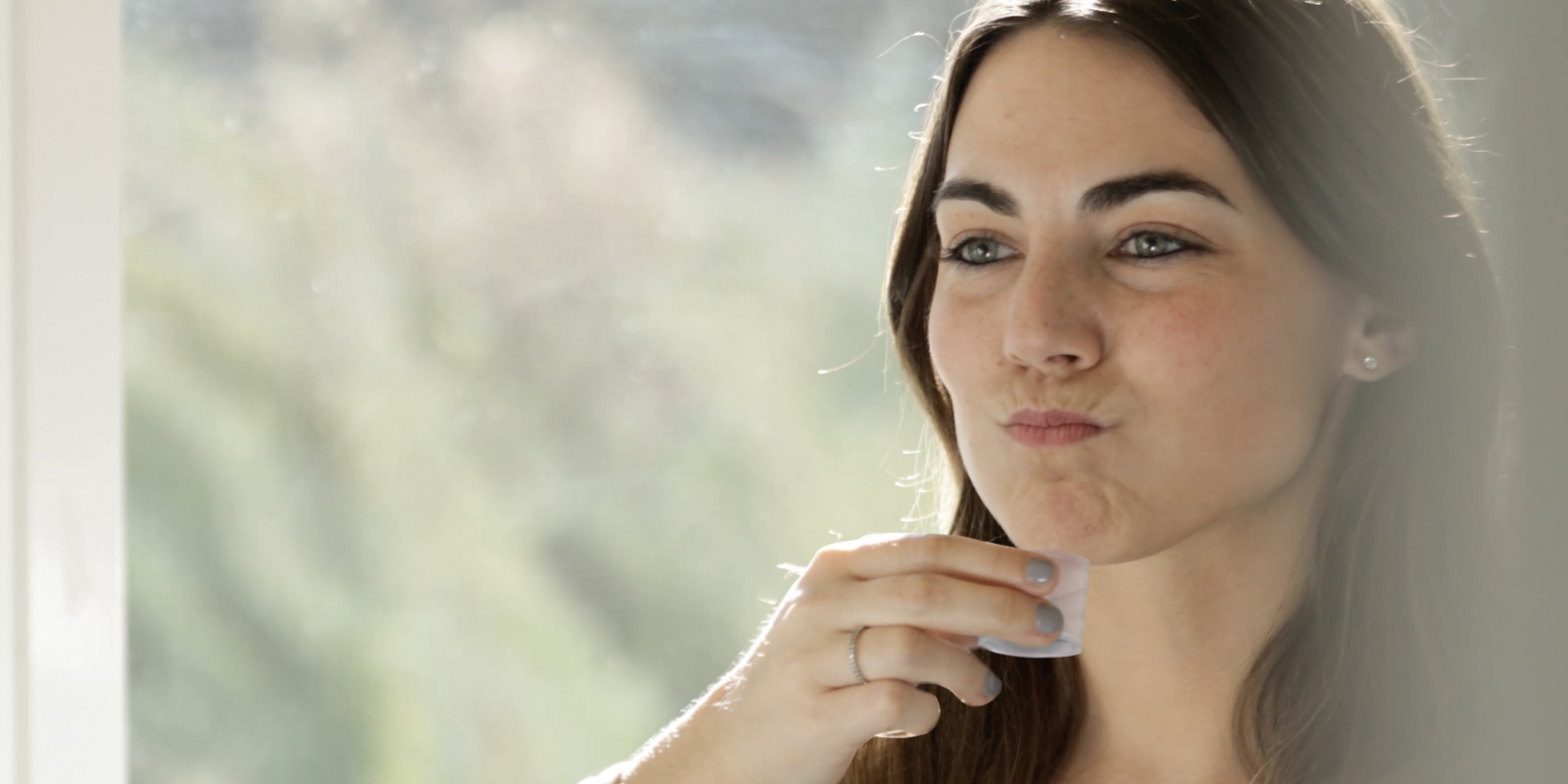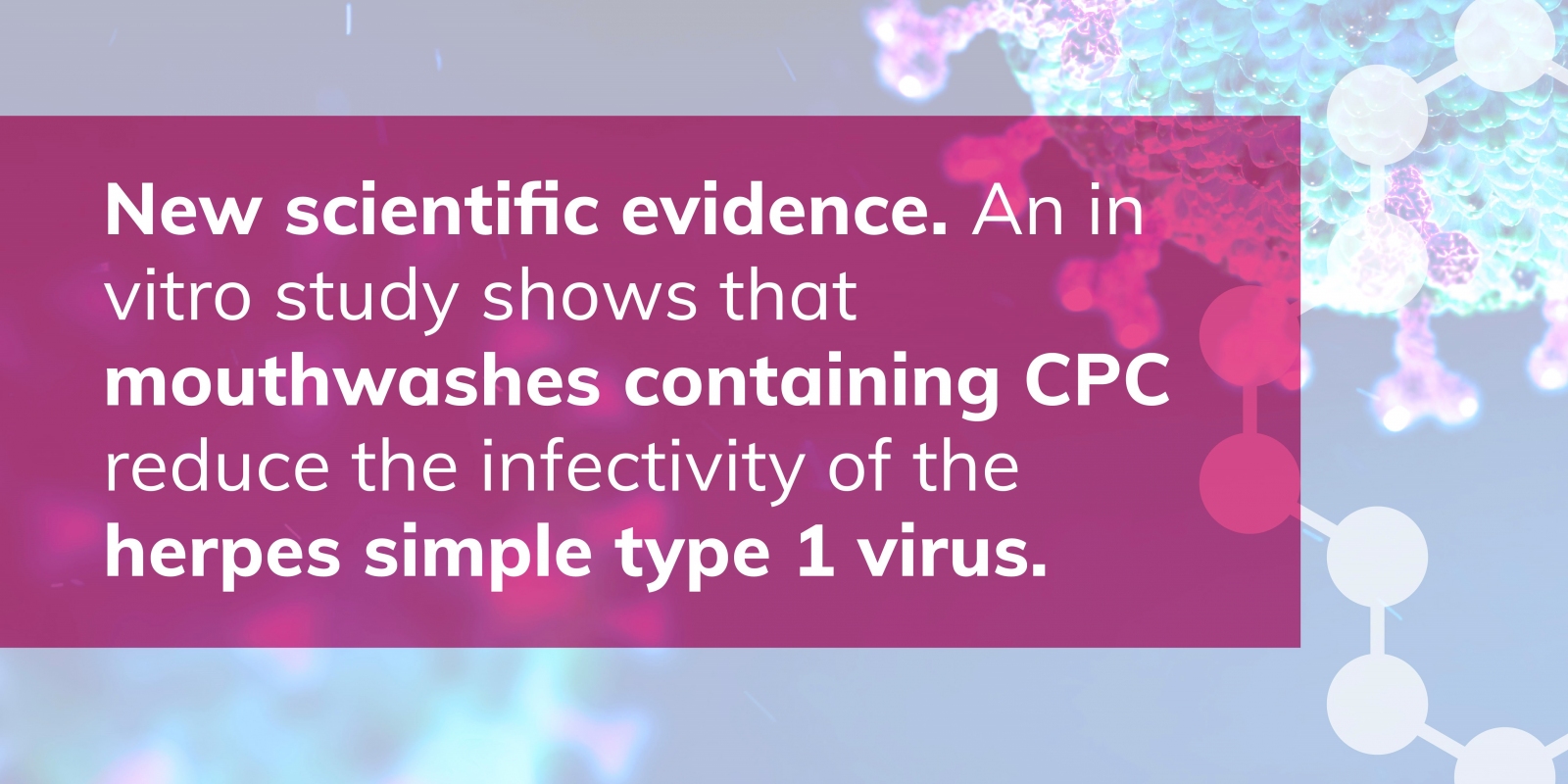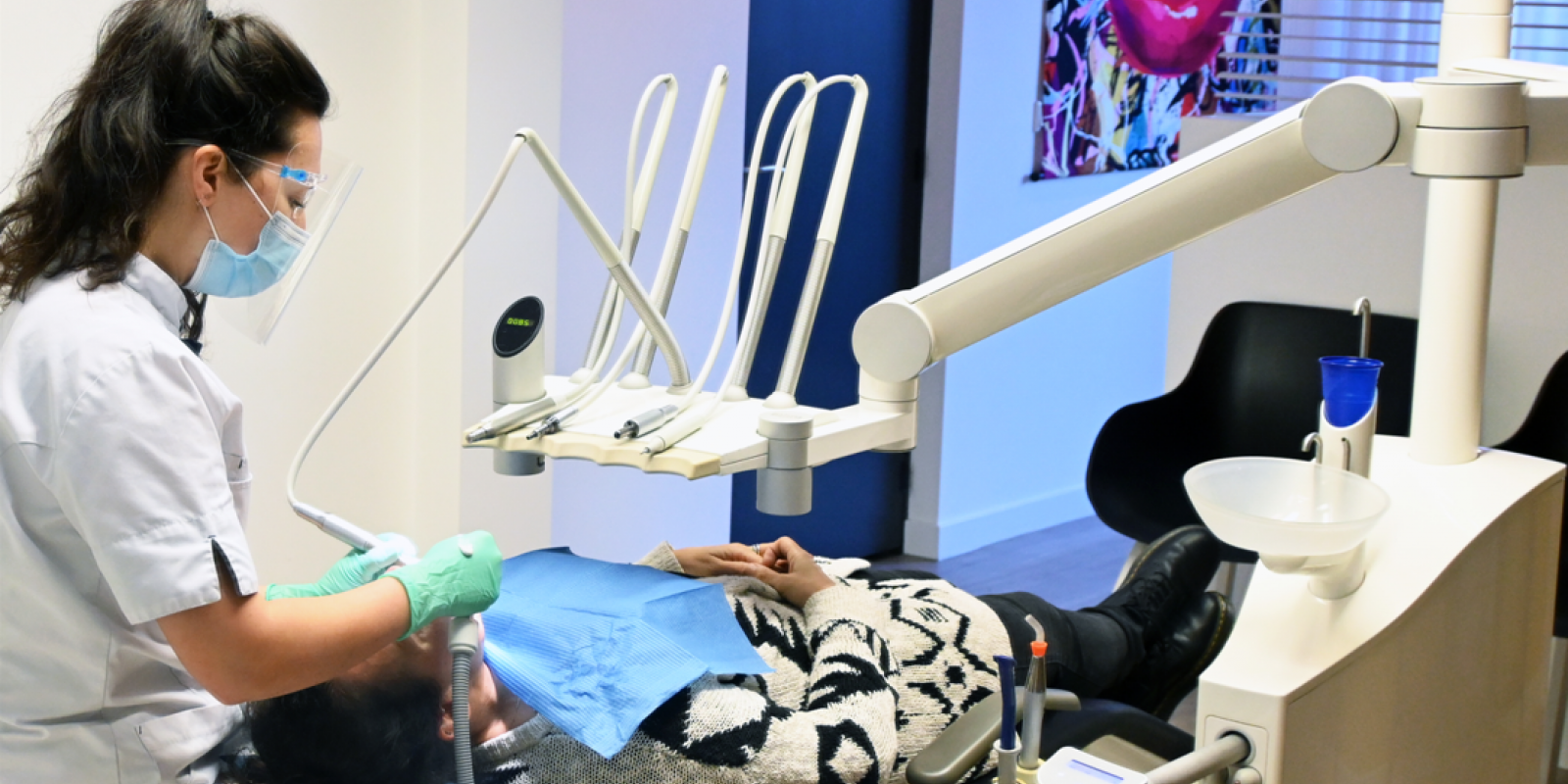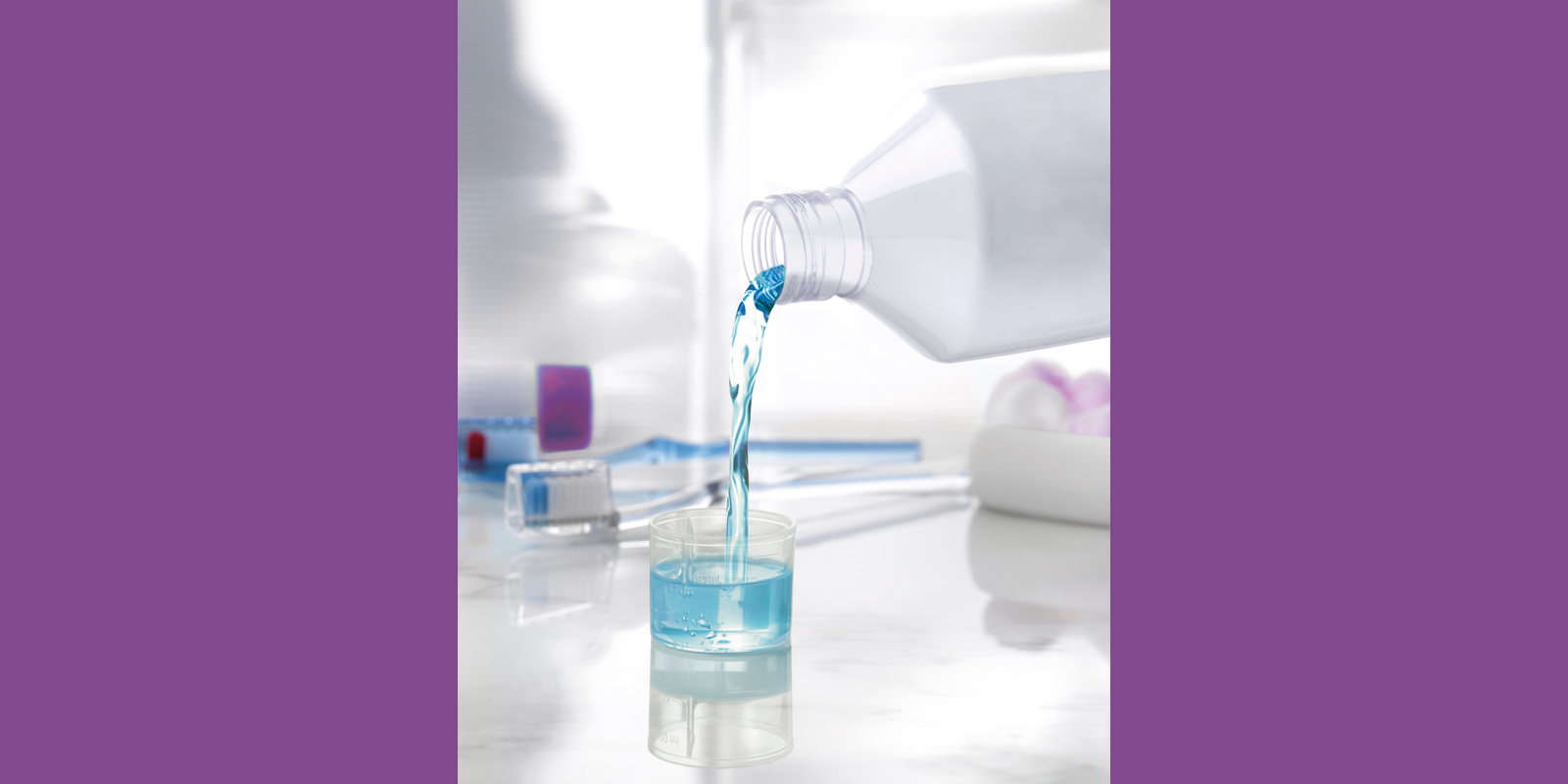DENTAID Press room
Laboratory studies prove that CPC in mouthwashes is effective against different variants of SARS-CoV-2 thanks to its mechanism of action
22 Jul 2021

- Researchers at IrsiCaixa, in collaboration with DENTAID Research Center, show that Cetylpyridinium Chloride (CPC), a compound present in some mouthwashes, reduces the infection capacity of the Alpha variant of SARS-CoV-2 –described for the first time at the United Kingdom– by more than 1,000 times in studies carried out on cells in the laboratory. These results add value to previous studies.
- The current study, published in the Journal of Dental Research, confirms that CPC destroys the virus by breaking the membrane that envelops it, preventing infection of the cells. Because of this mechanism of action, the efficacy results obtained with CPC against the Alpha variant could be extrapolated to all SARS-CoV-2 variants.
Barcelona, July 22, 2021. The new SARS-CoV-2 variants raise concerns in the scientific community as they may compromise the expected herd immunity, increase the transmission of the virus and even complicate the severity of COVID-19. Now, researchers from the PISTA group at IrsiCaixa, a centre jointly promoted by la Caixa" Foundation and the Department of Health of the Generalitat de Catalunya, in collaboration with DENTAID Research Center, have confirmed, expanding on previous studies, that Cetylpyridinium Chloride (CPC), a chemical component present in some mouthwashes, reduces the infection capacity of the Alpha variant of SARS-CoV-2 –that is, the variant first described in the UK– by more than 1,000 times in studies carried out in cells in the laboratory.
The results of the study, published in the Journal of Dental Research, show that the antiviral action of CPC is due to its ability to break the virus membrane and thus prevent the virus from entering cells. Thanks to its mechanism of action, CPC would be effective against any variant of SARS-CoV-2. On the other hand, and with the aim of simulating reality as much as possible, the PISTA group at IrsiCaixa has proved that CPC continues to be effective in the presence of sterilised saliva. These results shed light on the efficacy trial in humans, coordinated by the Fight AIDS and Infectious Diseases Foundation (FLS), in which they are assessing whether CPC is capable of reducing viral load in humans.
"Being able to demonstrate that the efficacy of CPC is maintained against the different variants of SARS-CoV-2 is crucial. Currently, variants such as Delta are of concern because of their high transmissibility and, therefore, capacity to originate new waves and collapse the health system more rapidly than the original virus variant", says the study coordinator and principal investigator of the PISTA group at IrsiCaixa, Nuria Izquierdo-Useros. "This is why finding a tool such as mouthwashes that can be easily distributed to all countries would be very useful to reduce the speed of transmission of the variants," adds Jordana Muñoz-Basagoiti, first author of the study together with Daniel Perez-Zsolt.
More than 1,000 times lower infectivity in cells in the lab
After proving it is CPC, and not another component of mouthwashes, the one responsible for reducing the infectious capacity of SARS-CoV-2, IrsiCaixa researchers, together with DENTAID Research Center, confirm in a new study carried out in the laboratory that the antiviral activity of CPC allows it to reduce the infectivity not only of the SARS-CoV-2 variant described in March 2020, but also of the Alpha variant, by more than 1,000 times.
These results go a step further than the previous study, as sterilised human saliva was included in the experiment, confirming that the CPC mouthwash does not lose efficacy in an environment similar to that of the oral cavity.
Effectiveness against all variants thanks to its mechanism of action
In general, vaccines target the virus's spike protein, a protein necessary for SARS-CoV-2 to enter human cells. However, the new variants of the virus have modifications to this spike protein, which could make the immunity of vaccines designed to fight SARS-CoV-2 more susceptible to the virus.
However, IrsiCaixa researchers have been able to confirm in this new study that the antiviral activity of CPC does not target the spike protein, but rather focuses on destabilising the virus membrane, favouring its rupture. "Using different laboratory techniques, the Izquierdo-Useros group have been able to confirm that the mechanism of action of CPC consists of breaking the virus membrane, without attacking any specific protein", says the director of IrsiCaixa, Bonaventura Clotet. "The fact that CPC does not target specific membrane proteins of SARS-CoV-2 is positive, as this makes it effective against any variant of the virus", adds Clotet.
"These new data confirm, once again, the important role that oral hygiene plays in overall good health. In the same way that a close link between the mouth and cardiovascular disease and diabetes has been established, we can confirm that there is a clear association between the oral cavity and COVID-19", concludes Joan Gispert, Director of R&D&I at DENTAID.
In order to demonstrate that the results obtained at the laboratory can be replicated to COVID-19 patients, a CPC- COVID efficacy trial has been conducted, under the coordination of FLS. The results of the trial are currently being analyzed and could demonstrate that the use of mouthwash and gargling for 1 to 2 minutes is sufficient to effectively reduce the infectivity of SARS-CoV-2 in saliva, especially during the first two weeks after infection, which is when the viral load is highest and, therefore, people are most contagious. This tool could be useful to stop transmission and contagion and prevent future waves.
Bibliography
Reference: Muñoz-Basagoiti J, Perez-Zsolt D, León R, Blanc V, Raïch-Regué D, Cano-Sarabia M, Trinité B, Pradenas E, Blanco J, Gispert J, Clotet B, Izquierdo-Useros N. Mouthwashes with CPC Reduce the Infectivity of SARS-CoV-2 Variants In Vitro. J Dent Res. 2021 Jul 20:220345211029269. doi: 10.1177/00220345211029269. Epub ahead of print. PMID: 34282982.
RELATED POSTS

09 Oct 2023
An in vitro study shows that mouthwashes containing CPC reduce the infectivity of the herpes simple type 1 virus

29 Jun 2023
Julia Akkerman: "Raising awareness and motivating people about their oral health depends on professionals"

22 Jun 2022